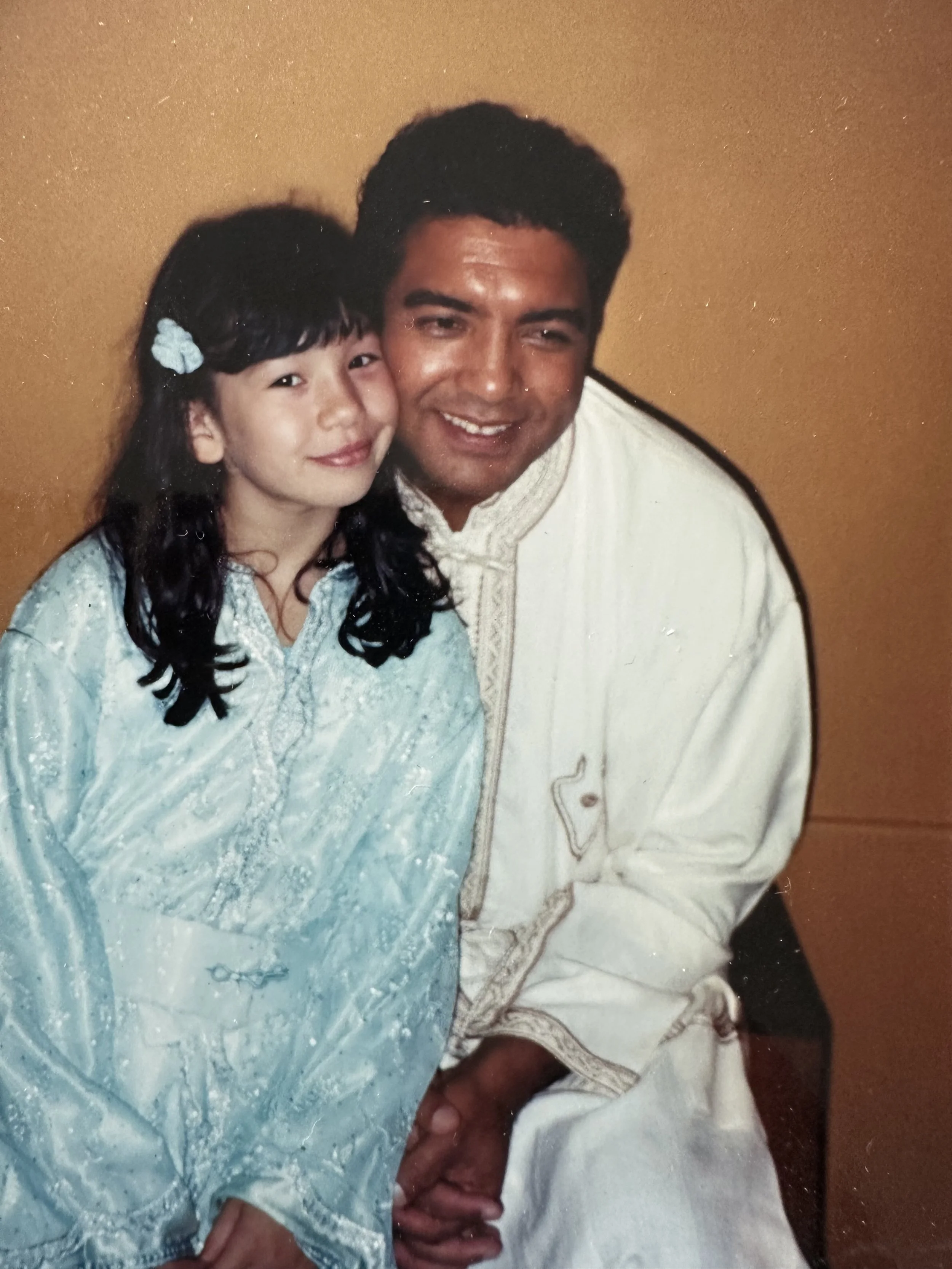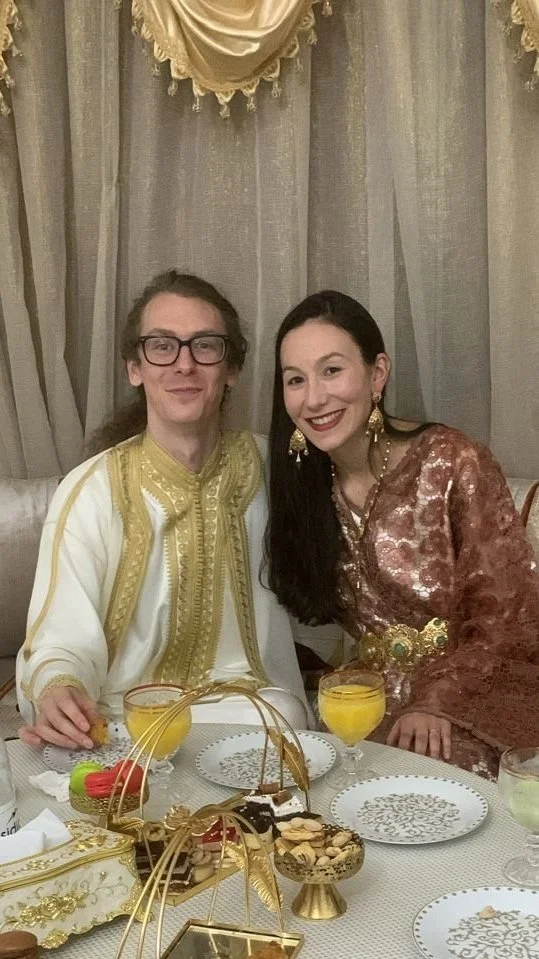Being Counted
I don’t know if many people realize that I’ve always been confused about what to check off on “the race box”. ☑️🤷🏻♀️
Would you believe that the USA only JUST created a racial category for Middle Eastern and North African (MENA) people this year? As in 2024! 🤯
My whole life there has not been not an adequate way to identify me or people like me in the USA. (Not to mention that being racially and ethnically mixed adds to the confusion. 🤣🙈)
Up until this point, MENA people in the USA were considered “White”. I remember being a kid and asking my dad what race he was. He said something like, “When I came to the USA, they said I was Caucasian”. He never used the word “White”. He always specified “Caucasian”, as if there was some distinction that needed to be made.
Being mixed, this ambiguity was especially confusing for me because I am both White and North African. But, there was never an option to acknowledge my North African half, so I would select “White”. Or, sometimes I’d select BOTH “White” and “Other”. Yet, having to select “White” all the time made me feel like an imposter as a Moroccan. So, then I switched to just “Other” (which goes against everything I learned as a statistician 😅).
As a kid, you get the confusing questions from the peanut gallery. Once the kids in your class realize that Morocco is in Africa, someone inevitably asks, “So, you’re African?” (Insert Mean Girls meme 👯♀️: “If you’re from Africa, why are you white?” 😅)
But, then we all go back to being confused in geography class when we start to notice that North Africa generally isn’t grouped in with the rest of Africa unless it’s convenient—like when Morocco was winning in the World Cup. 🤣 (And by the way, it was never clear which racial category people who are actually from Africa “fit” into anyways.)
I remember kids telling me when I was applying to college to list myself as African American so I could have a better chance at scholarships. Besides the fact that this was making unfair assumptions about school selection processes, it was also a ridiculous suggestion for me. I also remember finding out years later that my dad at one point attended Howard University (an HBCU) and wondering if somehow I had completely misunderstood my racial identity all along—and if maybe those kids were right. 😆
But, still, it never made sense to me that I was “supposed” to select “White” because I felt soooo different from my White friends. 10 yr old me, smelling like saffron and cumin, I felt like the girl from My Big Fat Greek Wedding sitting next to my White American friends (who definitely did not smell like their peanut butter and jelly sandwiches) as we both checked “White” on our standardized tests. Our lives and our experiences just seemed so different. 🤷🏻♀️
I can see how to some people a box may not seem like much. Or, perhaps, why would you want to be labeled anyways?
To that I share this story: When my dad left the “race” box blank on his Virginia marriage license in the 1980’s, the courthouse clerk demanded he make a selection. My dad, who immigrated here at 19 and is very clearly brown, replied “There is nothing for me. I am not ‘other’”. The clerk retorted, “Well, if you don’t pick something, I’m going to fill it out for you.”
While race and ethnicity are different, it’s hard to deny the fact that most MENA people who immigrate here live very different lives than the white racial majority with whom they are being asked to identify. Being counted in this colorblind way has not necessarily helped MENA peoples.
What many people don’t realize is that often MENA people don’t get the “benefits” of White privilege because of their phenotype, AND they simultaneously miss out on potential opportunities for help as a minority because they are not counted as such.
I acknowledge that I come to this conversation as a mixed person, and, though as a mixed person this is not my full reality, it’s still true that I’m often grouped into White spaces where I honestly just don’t make sense. I’ve also been excluded from receiving help, as if Whiteness somehow erased my minority needs like financial assistance, certain medical testing, and support as a first generation kid. Being counted matters.
No official racial category has meant underrepresentation and under-counting for MENA peoples in the USA. Just speaking as a statistician, there are no solid stats for people like me in the USA on things like health research and education because we’ve been “invisible in the data for decades” as stated in an NBC article called “We Exist: New Middle Eastern or North African census category helps community members feel seen”.😶🌫️
When we have conversations about race and racial reconciliation, I think it’s critical to ask ourselves “Who is not at the table?”
This is an especially important practice in American churches where, let’s face it, there usually aren’t many MENA people. (Read: I’m ready to not be the token MENA person anymore 🙋🏻♀️😆.)
Friends, what if we expanded our discussion on diversity in the American Church beyond dichotomies of Black and White or East and West? There’s a whole group of us in the middle (literally) who have something to say—not to mention Jesus himself who is a MENA individual from Nazareth (mic drop🫢).
And while we’re at it, let’s remember those of us who are mixed ethnically and/or racially 🙋🏻♀️. This is often the smallest and quietest group because it’s the least unified. But, as people who live and breathe multiple races and cultures all the time, we are often natural peacemakers as we work to reconcile the many disparate (and sometimes conflicting) pieces of ourselves.
I’m proud to be Moroccan, American🇲🇦🇺🇸+ and I am extremely thankful to live in the USA.
But, I have to say, this new MENA box makes my saffron-cumin 10-yr-old self really happy — I feel a little less invisible finally being counted. 👩🏻 🇲🇦🇺🇸+
With gratitude,
Sarah Labriny Henretty


